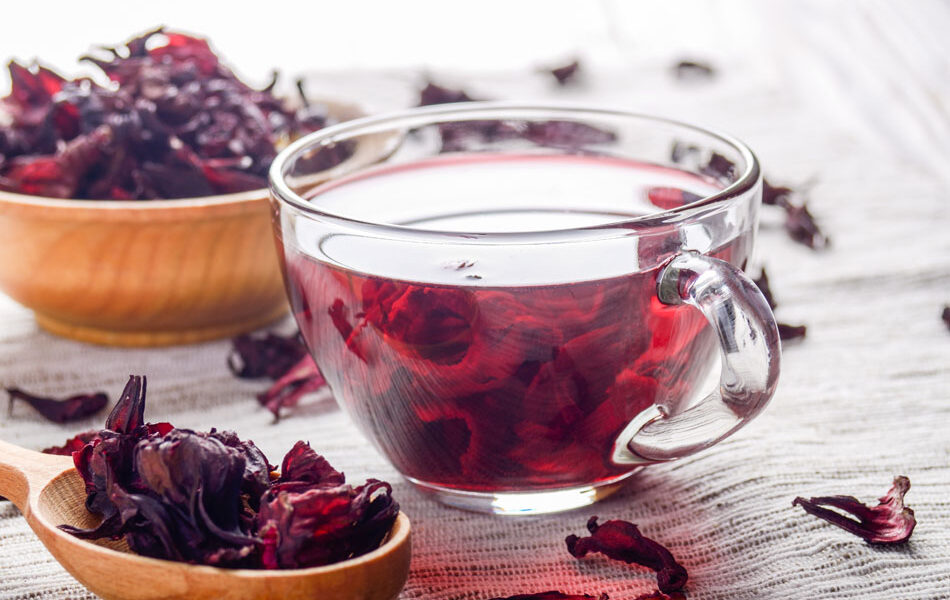What Is the Best Tea for Managing Diabetes? Discover These 8 Options
Tea is a natural source of antioxidants and anti-inflammatory compounds that may help lower blood sugar levels. Many different types of tea can help manage diabetes, but it’s important to find one that works for you. Here are the best options to help you choose the best tea for managing your diabetes.

Tea, the most enjoyed and the second most consumed beverage in the world after water, has been renowned worldwide for its health benefits.
Recent studies suggest that tea is a powerhouse rich in minerals and compounds that may help decrease diabetes risks.
Tea has proven to provide many health benefits to people with diabetes. From reducing inflammation, enhancing insulin sensitivity, helping manage weight, boosting immunity and energy, and improving circulation – all of these are important for managing diabetes.
This article lists the 8 best teas for diabetes control, explains what drink lowers diabetes, and answers all your questions about tea and diabetes.
The Top 8 Diabetes-Friendly Teas to Sip on
Certain teas contain high polyphenol content and have anti-inflammatory, weight, and blood sugar-lowering properties, making them great options for diabetes management.
The teas listed below are the best choices for people with diabetes, and while they can be considered as diabetes teas, anyone can consume them daily to reap their various benefits:
#1 Ginger tea
Ginger is a natural anti-inflammatory antioxidant with numerous potential health benefits for various illnesses, including cancer and blood sugar control.
According to a review of studies, ginger may help reduce A1C and fasting serum glucose levels in people with type 2 diabetes. A1C is a standard diabetes test that determines your average blood sugar level for 2–3 months.
Obese diabetic rats were given a cinnamon and ginger mixture in a study. The rats benefitted from various factors, including reduced body weight, body fat mass, blood glucose levels, and increased insulin levels.
Another study on rats with diabetes showed that ginger might help protect against diabetes-related heart issues.
#2 Green tea
Green tea has numerous health benefits, some of which are especially beneficial for people with diabetes. Drinking green tea, for example, has been shown to help minimize cellular damage and inflammation, optimize blood sugar regulation, and avoid obesity.
While research shows that obesity can increase diabetes risk by at least sixfold, another study found that people who drank green tea for more than 12 weeks had a smaller waist circumference and less body fat than those who did not.
Green tea also contains powerful components, such as epigallocatechin gallate (EGCG), which have been found to promote glucose uptake into skeletal muscle cells, lowering blood sugar levels. This can also help reduce obesity.
#3 Hibiscus tea
Also known as sour tea, hibiscus tea is a bright-colored, tart tea prepared from the petals of the Hibiscus sabdariffa plant.
Hibiscus petals include a range of potent polyphenol antioxidants, including anthocyanins and organic acids, which contribute to the bright crimson color of hibiscus tea.
Consuming hibiscus tea has been proven to have good health effects, including reducing blood pressure levels and inflammation.
Diabetes is associated with high blood pressure and increased heart attack and stroke risks. Consuming hibiscus tea may help people with diabetes control their blood pressure levels.
Another study found that drinking 8 ounces of hibiscus tea twice daily for a month lowered systolic blood pressure among people with diabetes, which benefits them as they are at a higher risk of developing cardiovascular disease.
Research also suggests that hibiscus may help in the reduction of insulin resistance.
#4 Rooibos tea
Rooibos tea is a red herbal tea made from the fermented leaves of the South African plant Aspalathus linearis. Rooibos tea may help people with diabetes control their blood glucose levels, lowering complications and risks.
Animal studies have revealed that the antioxidant aspalathin in rooibos tea has anti-diabetic properties.
Aspalathin may also help people with diabetes lower their risk of atherosclerosis and vascular inflammation, which can contribute to heart issues. People with diabetes are 2–4 times more likely to die from heart disease than people who do not have diabetes.
According to research, aspalathin helps suppress vascular inflammation caused by high blood sugar levels.
#5 Turmeric tea
Turmeric is a spice you can find in powder or whole-root form, and it’s very easy to add to your diet. It is effective in reducing blood glucose and cholesterol levels, as well as increasing insulin sensitivity.
Type 2 diabetes is associated with inflammation and oxidative stress, which contribute to insulin resistance and uncontrolled blood sugar levels. Turmeric is rich in curcumin, a substance known for its antioxidant and anti-inflammatory properties.
According to research, curcumin may improve healthy glucose levels by boosting insulin sensitivity and increasing glucose absorption in tissues. This study also found curcumin intake to be linked with reduced lipid levels, cellular damage, body weight, and improved kidney function.
#6 Peppermint tea
Peppermint tea is made from a mix between spearmint and watermint. It differs from other teas due to its chemical composition, which has around 40% more menthol and is packed with antioxidants that are beneficial to its users’ health.
Peppermint tea has been characterized as a pleasant, refreshing, and relaxing beverage that is unmatched. Individuals with type 2 diabetes who are stressed may benefit from the relaxing and refreshing benefits of peppermint tea because lowered stress can improve blood glucose levels.
The antioxidants in peppermint are responsible for its health benefits. Polyphenols are notable among these, as research has revealed that their consumption lowers the blood sugar level of its consumer.
Polyphenols have been shown to help in the treatment of both acute and chronic conditions such as obesity, cardiovascular disease, and diabetes.
Peppermint tea is beneficial for rehydrating blood. Dehydration, according to a study, may raise the risk for diabetics. As a result, one method of consistently treating diabetes is constant rehydration with water or tea.
#7 Chamomile tea
Chamomile is a European plant with numerous health benefits, including improving healthy blood sugar control.
Research suggests that drinking chamomile tea can help lower blood sugar levels. It has anti-inflammatory qualities, which help to reduce the risk of pancreatic damage. The pancreas is the organ that regulates your blood sugar levels.
Chamomile tea can also help protect against oxidative stress, a problem that can cause diabetic issues.
People with diabetes require enough sleep. The CDC reports that even one night of sleeplessness might lead your body to release insulin less effectively, increasing your blood sugar levels.
Chamomile tea has been found to help promote healthy sleep, reduce the symptoms of depression and anxiety, and boost immunity and digestion.
Animal studies suggest that drinking chamomile tea daily may help slow down the progression of diabetes symptoms.
#8 Black tea
When black tea is fully oxidized, the catechins are transformed into theaflavins and thearubigins, which are powerful plant components with anti-inflammatory, antioxidant, and blood-sugar-lowering effects.
Black tea has been shown in animal studies to decrease carbohydrate absorption and improve blood glucose management.
A study suggests that black tea can help reduce body weight. Moreover, drinking black tea after eating sugary foods helps manage blood glucose levels.
Black tea also contains a unique polysaccharide component that can have the same effect as the type 2 diabetes medications Precose and Glyset.
What Drink Lowers Blood Sugar?
Drinking lots of water and zero or low-calorie drinks can help lower blood sugar. Low-sugar alternatives, such as vegetable juice, should be taken in moderation.
Because milk contains lactose, a naturally occurring milk sugar, it must be included in your total carbohydrate limit.
Avoid sugar-sweetened options, as they can spike blood glucose levels and increase weight and diabetes risk. Sweet beverages can not only spike your blood sugar levels, but they can also account for a large amount of your daily recommended caloric intake.
FAQs
An analysis of several studies found that drinking green tea is linked with lower fasting glucose, A1C levels, and lower fasting insulin levels, which are used to assess diabetic health. While not all studies have yielded such favorable findings, green tea has been demonstrated to be beneficial in other ways.
Green tea and green tea extract may help lower blood sugar levels and prevent type 2 diabetes and obesity. The chemical present in green tea may minimize the spike in blood sugar after eating starchy meals.
Drinking green tea and coffee has been related to a lower chance of dying from any cause in people with type 2 diabetes. According to that research, drinking four or more cups of green tea daily and two or more cups of coffee was linked with a 63 % lower risk of death over five years.
Unsweetened tea is a great low-calorie beverage option for those with type 2 diabetes because it does not affect blood sugar levels. It can also help prevent dehydration, which can cause blood sugar levels to increase.
A Word From a Nutritionist
If you have or are at risk of developing diabetes, drinking herbal tea can be extremely beneficial to your health and promote well-being. This is because tea is a calorie-free beverage that is an important way to manage diabetes.
Tea can make a good breakfast for diabetes, but you will only enjoy its many health benefits if you consume it in its purest form, without adding milk or sugar. Adding milk tends to nullify some benefits, while adding sugar will increase diabetes risk and may even cause organ damage.
Remember that too much of anything can be dangerous to your health; research shows that 3–4 cups of tea daily is ideal for diabetes management. However, you must be certain that the tea you consume has no undesirable side effects, such as allergic reactions, heartburn, or nausea.
Also, if you experience any change in your health, especially after drinking tea, stop immediately and consult your diabetes doctor.
Conclusion
Tea use regularly helps lower blood sugar levels, provides a soothing effect, reduces inflammation, and fights dehydration. Tea has numerous other health benefits, including improved metabolic and cardiovascular health, decreased bad cholesterol levels and blood pressure, and helps lose weight.
Drink high-quality tea such as black tea, ginger tea, turmeric tea, or even oolong tea for best results, and ask your doctor about potential adverse effects. Additionally, remember that tea is not a cure-all for diabetes but a supplement that can improve your quality of life.

- Personalized and diabetes-safe meal plan
- An integrated shopping list that matches the meal plan
- No-equipment home workouts
- All-in-one health and progress tracker
- Detailed activity log

















































 Select your language:
Select your language: 








